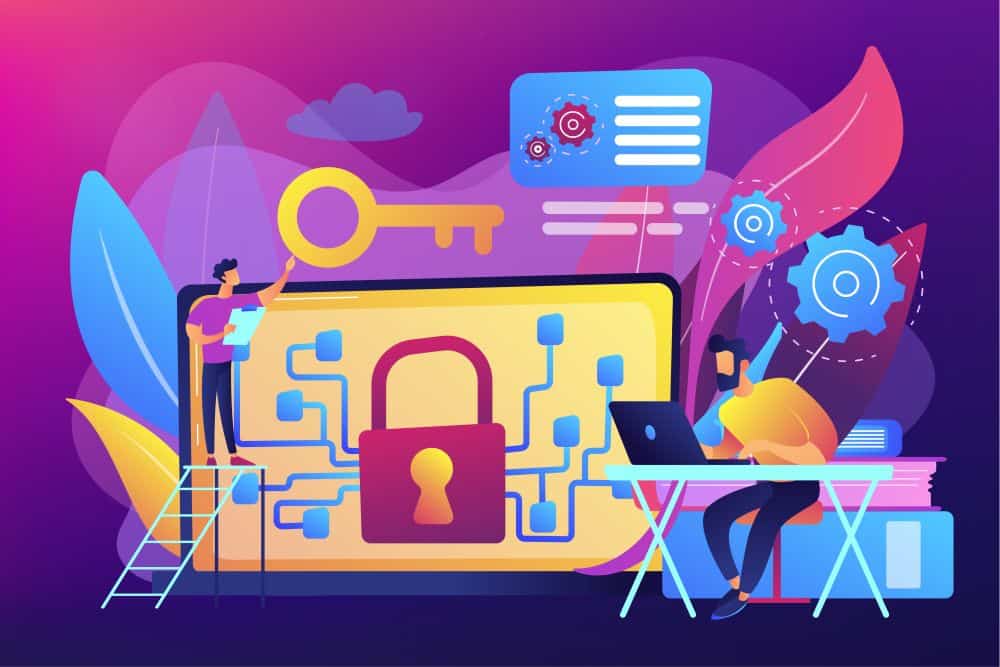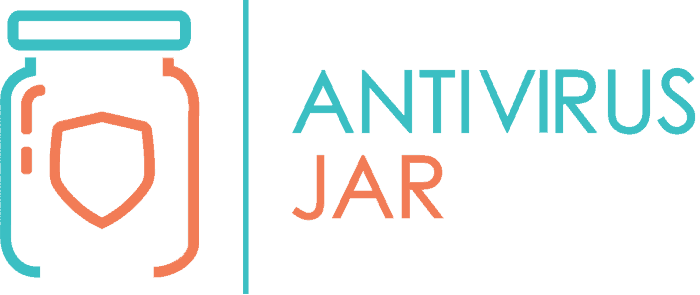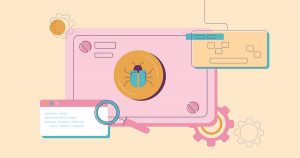
Encryption is a good thing for your privacy. You can encode your important files, and no one can open them without knowing your encryption key. You can block essential documents, photos, and directories to protect your sensitive data from online threats or people using your pc. But this can go the other way around. A hacker can encrypt your files and ask you to pay for the key.
Can antivirus scan encrypted files? The reason for encrypted data is so it cannot be understood by anyone. Only the person that has the encryption key can decrypt the file. Your antivirus doesn’t know that key, so it cannot read it or open it.
So we established that these types of files are not going to do you harm if you are not opening them. But you downloaded them with this purpose because the publisher promised it contains whatever information you were looking for. Lets first start with learning more about encrypted and compressed files, and we will know how we can use those and not become a victim.
What is an encrypted file?
Encryption is a way of protecting data from hackers, online criminals, and spies or other users that have access to your pc. It is a mathematical algorithm that takes your data, converting it from plain text into ciphertext. In simpler terms, this means taking data that you can understand and make it seem random.
A simple example is the one that Julius Caesar used. He removed the last three letters from the alphabet and put them in front of it. X was A, Y was B, Z was C, and so on. Nobody could understand what he was writing unless the recipient knew this decryption rule.
There are two types of encryption: Symmetrical encryption and Asymmetrical encryption, also known as public key encryption. Both types of encryption are using keys to encrypt their data. A key is a string of characters that is used by the encryption algorithm to alter the data. It is like a key to a lock. Only the person that has it can unlock it.
In Symmetrical encryption, only one key is used to encode the files. In asymmetrical encryption, there are two keys: a public one and a private one. A public key is the one that everyone knows, and a private key is individual. The data that was encrypted with the public key can be opened only by a private key. The files that were encrypted with a private key can only be decrypted with the public key.
Enough with the technical stuff. I hope you understood the basics! The good news is that most antivirus vendors offer data encryption! This makes your system even more protected and stops hackers from accessing the files on your pc.
How do I decrypt encrypted Ransomware files?
One of the most common practices that hackers use to get some money is Ransomeware. They encrypt important files or your entire hard drive and ask you to pay them to decrypt your data. That sucks if you don’t have a backup of your hard drive. But is there something that you can do to decrypt your files without paying them? There are a few things that you can do.
1. Scan your pc.
If you don’t have an antivirus or malware scanner is time to download and install one. Ransomeware is a type of virus that entered your pc through an infected file. The first step is to identify that file and delete it from your pc. If you remember the files, you downloaded and thought you got infected by it, you can delete it without an antivirus. But the problem with viruses is that it spreads around. The best thing to do is to let an antivirus scan your entire pc.
After the scan, most likely, your antivirus will find the infected file and remove it. You made sure that if you decrypt your data, it will not be infected again by the virus. Let’s move to the next step
2. Discover the type of ransomware
There are known types of ransomware types. Each one has a different string pattern that they use to encrypt your data, so if you know which one, it will help you to determine which decryption tool to use. If you have a premium antivirus, chances are that it has decryption functionality. Let your antivirus try to detect it and decrypt your files.
If that fails, you have to use a dedicated decryption tool. Here are some steps to identify what you should do next.
- Find the ransom note file. Usually, this file will be your background image on your desktop.
- Find an encrypted file. This should be easy because such a file can be found even on your desktop. If you have an image and its icon doesn’t look like before and is a weird icon, that image was encrypted
- Upload them to an online Ransome ID tool. Search google. You can find a lot of tools that will help you analyze the type of malware you have. Those tools will need a ransomware note and an encrypted file.
- Download and start decryption. After the Ransome ID tool determines which type of ransomware you have, it will suggest a tool to use.
If your Files are not decrypted, or you cannot do this by yourself, go to a reputable pc service. They will know what to do. If worse comes to worst, you will have to format and reinstall your windows or mac.
Always be prepared
Preventing your files from being encrypted is the best thing that you can do. Don’t rely only on your antivirus to protect you against viruses and online threats. This should be only one layer of protection, and no matter how expensive or fancy it is your antivirus, it will not protect you 100%. You are the operator this pc and your antivirus can’t guess your behavior. And you can always bypass your antivirus and get infected. You are clicking on the infected file and encrypt your pc.
Malware is not everywhere, and if you stay away from the infected places, you will be okay even without an antivirus. Stay away from fishy websites; don’t open an email with an unbelievable title from an unknown server. Don’t buy used flash drive and use your common sense when something sketchy encounters your way
Top Antiviruses that can encrypt your data
I said it before and I will repeat it. When I choose an antivirus for myself, I look at 3 things:
- Experience. Everyone wants someone that has experience in handling personal data. And more than that, I want to be sure that they know what they are doing. This comes through trial and error and with time.
- Usability. If I can’t use it, it is no good. I don’t care if the technology is so good that it can make me pancakes while protecting my pc. If it is so counterintuitive and I have to read an encyclopedia just to use it., No thanks!
- Not Free. There is no such thing as a free product. You pay for something. Free Antivirus comes packed with marketing and ads. They will keep telling you to update every time you open your email or your pc.
1. Bitdefender
One of the best in the business. They offer more than a simple antivirus even with their cheapest offer. To take advantage of file encryption, you have to opt for a more comprehensive package. You can find more details Here
2. McAfee
Another important player in the security industry. I have used McAfee before, and it always served me well and nonintrusive. They have tons of experience in this field, and I will trust them with my data. They offer storage encryption with their premium antivirus. You read more Here
3. Avast.
Avast was the first antivirus that I used. It was a free version, and it was horrible to use. But I took a shot and started using it again after a while. Man, what a difference. They really listened to their customers and removed all that unnecessary bloat and made it way simpler to use. They offer data encryption with their premium antivirus. Find more details Here
Any antivirus will do you good in the battle with ransomware. Those are just my product preferences, and you can choose whichever solution you would like. If you are an experienced user and know how to stay away from online threats, you will not need an antivirus at all. Windows defender will be enough. You will be protected by the built-in security features of Mac OS if you use an Apple product.
Don’t take online security lightly. If you were not infected yet or never been, don’t think you will not be attacked. The sad reality is that millions of people are getting hacked every year, and the damage is in the billions of dollars. So stay safe and don’t be a victim






